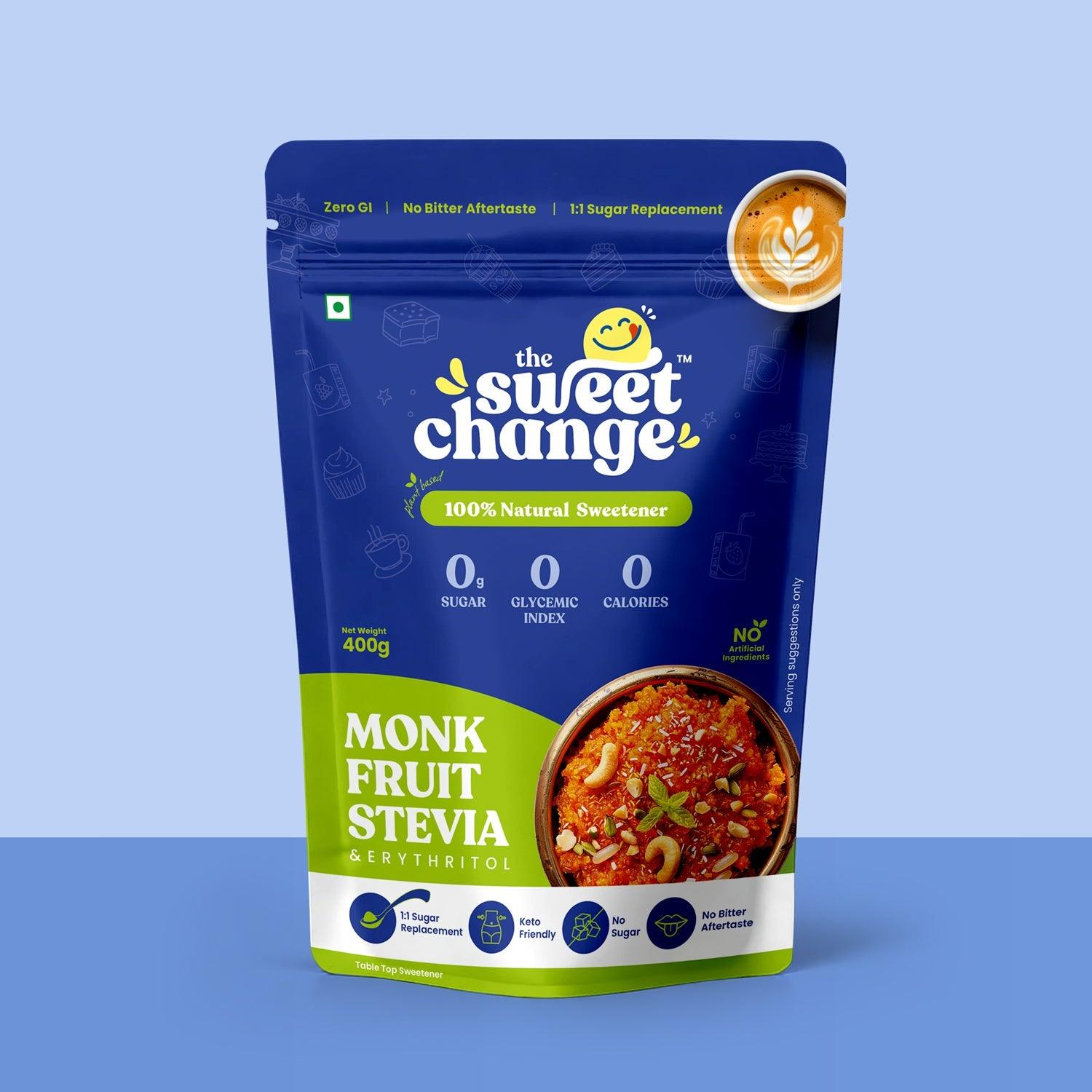
Top 5 Nutrients to Improve Insulin Sensitivity Naturally
Share
Introduction
Insulin resistance is a metabolic condition where your cells don’t respond effectively to insulin the hormone that helps move glucose into cells for energy. Over time, this leads to higher blood sugar levels, prediabetes, or type 2 diabetes.
Lifestyle changes, such as exercise, sleep, and stress management, play a significant role in reversing insulin resistance. But one often-overlooked factor is micronutrient nutrition. Research indicates that deficiencies in specific vitamins and minerals can exacerbate insulin resistance, inflammation, and oxidative stress.
The good news? Adding the right nutrients to your diet can enhance insulin sensitivity, protect your cells, and stabilize blood sugar naturally.
In this blog, we’ll explore the top 5 vitamins and minerals that improve insulin sensitivity, backed by science, along with practical food sources and tips.
Why Nutrients Are Essential for Blood Sugar Control
Nutrients do more than fill calorie gap; they act as metabolic regulators. Here’s how key vitamins and minerals help:
-
Support insulin production – Vitamin D, magnesium, and zinc regulate how insulin is secreted from the pancreas.
-
Improve insulin sensitivity – Chromium and magnesium help cells respond better to insulin.
-
Lower inflammation & oxidative stress – Vitamins C and E protect against cell damage that worsens diabetes.
-
Protect nerves & blood vessels – Vitamin B12 prevents diabetic neuropathy and supports energy metabolism.
Without these nutrients, your body struggles to maintain glucose balance even with diet and exercise.
1. Vitamin D - The Sunshine Hormone for Insulin Health
Vitamin D is more than a vitamin — it acts like a hormone. Low levels are common in people with insulin resistance and type 2 diabetes. Research shows vitamin D improves pancreatic beta-cell function (where insulin is produced) and enhances insulin receptor sensitivity.
Why It Helps:
- Boosts insulin secretion and efficiency
- Lowers systemic inflammation
- Improves glucose uptake in muscles
Best Sources : Sunlight (10–20 min daily), fatty fish (salmon, mackerel), mushrooms, fortified dairy or plant-based milk.
Note: If deficient, supplementation under medical guidance may be required.
2. Vitamin B12 - Energy & Nerve Protection
Vitamin B12 plays a crucial role in nerve function, red blood cell formation, and DNA synthesis. People with diabetes, especially those taking metformin, are at high risk of deficiency. Low B12 can worsen diabetic neuropathy (nerve damage), fatigue, and poor glucose metabolism.
Why It Helps:
- Protects nerve health in diabetes
- Reduces fatigue and supports energy metabolism
- Helps maintain healthy blood sugar regulation
Best Sources : Eggs, dairy, fish, chicken, and fortified plant milks.
Tip : Vegans and long-term metformin users should regularly test B12 levels.
3. Vitamin C - The Antioxidant Shield
Vitamin C is a powerful antioxidant that combats oxidative stress - a major cause of insulin resistance. Clinical studies suggest vitamin C supplementation can lower fasting glucose and HbA1c (3-month average blood sugar).
Why It Helps:
- Protects cells from oxidative damage
- Reduces systemic inflammation
- Improves blood vessel health (reducing diabetes complications)
Best Sources : Citrus fruits (oranges, lemons), amla (Indian gooseberry), bell peppers, broccoli, berries.
4. Magnesium -The Metabolic Master Mineral
Magnesium is one of the most important minerals for glucose metabolism. It is required for over 300 biochemical reactions, including insulin signaling and energy production. Low magnesium is strongly associated with insulin resistance and type 2 diabetes.
Why It Helps:
- Improves how cells respond to insulin
- Regulates blood sugar levels
- Supports muscle and nerve function
Best Sources: Leafy greens (spinach, kale), legumes (lentils, chickpeas), nuts, seeds, whole grains.
Note: Supplements may help if a deficiency is confirmed, but excess can cause side effects.
5. Chromium - The Insulin Co-Factor
Chromium is a trace mineral that enhances the action of insulin by improving insulin receptor activity. It helps move glucose into cells more effectively, reducing blood sugar spikes. Some studies suggest chromium supplementation may help reduce cravings for refined carbs and stabilize energy.
Why It Helps :
- Boosts insulin sensitivity
- Improves glucose transport into cells
- Supports stable energy and metabolism
Best Sources: Broccoli, whole grains, legumes, and nuts.
How to Add These Nutrients to Your Diet
- Eat whole foods first: Vegetables, fruits, legumes, nuts, seeds, and lean proteins provide these nutrients naturally.
- Pair foods wisely: Vitamin D and E need healthy fats for absorption; Vitamin C enhances iron absorption.
- Consider supplements carefully: Only if deficiencies are confirmed. Always consult a doctor before starting.
- Be consistent: Nutrients don’t work overnight — benefits are seen with long-term, steady intake.
Summary
Managing insulin resistance isn’t just about reducing carbs - it’s about nourishing your body with the right nutrients.
The top 5 science-backed nutrients - Vitamin D, Vitamin B12, Vitamin C, Magnesium, and Chromium -all play unique roles in improving insulin sensitivity:
-
Vitamin D: Improves insulin production & cell response.
-
Vitamin B12: Protects nerves and boosts energy.
-
Vitamin C: Reduces oxidative stress & lowers HbA1c.
-
Magnesium: Enhances insulin signaling & glucose control.
- Chromium: Acts as an insulin cofactor, reducing blood sugar spikes.
By combining a nutrient-rich diet with exercise, quality sleep, and stress management, you can naturally improve insulin sensitivity, reduce inflammation, and lower your risk of type 2 diabetes.
Which vitamins are most important for insulin resistance?
Vitamin D, Vitamin B12, and Vitamin C are the most important. They improve insulin action, protect nerves, and reduce oxidative stress, all of which support better blood sugar control.
How does magnesium improve blood sugar regulation?
Magnesium is a cofactor in insulin signaling pathways. It helps insulin move glucose into cells more efficiently, preventing spikes in blood sugar. Low magnesium is strongly linked to type 2 diabetes.
Can chromium supplements lower blood sugar?
Chromium enhances insulin receptor sensitivity and improves glucose uptake into cells. While food sources are best, supplementation may help if dietary intake is inadequate
Why is vitamin B12 important for diabetics on metformin?
Metformin can reduce B12 absorption, leading to deficiency. This may worsen nerve problems and fatigue in diabetes. Supplementation is often recommended under medical guidance.
Should I rely on supplements or food for these nutrients?
Whole foods should be your first source — vegetables, nuts, seeds, fruits, legumes, and lean proteins. Supplements should only be used if blood tests show deficiencies.
Reference Links
https://pmc.ncbi.nlm.nih.gov/articles/PMC10607188/
https://dmsjournal.biomedcentral.com/articles/10.1186/1758-5996-5-8
https://www.nature.com/articles/s41598-023-39469-9
https://www.frontiersin.org/journals/cardiovascular-medicine/articles/10.3389/fcvm.2022.859793/full
https://www.mdpi.com/2072-6643/13/10/3491
https://pubmed.ncbi.nlm.nih.gov/27702717/
https://pmc.ncbi.nlm.nih.gov/articles/PMC10798099/
https://www.mdpi.com/2072-6643/12/6/1864
https://bmcendocrdisord.biomedcentral.com/articles/10.1186/1472-6823-12-31

Country Head-Baby Nutrition -Ex Danone | Ex-Wockhardt


 https://www.linkedin.com/in/rajeev-agnihotri-a7094425?utm_source=share&utm_campaign=share_via&utm_content=profile&utm_medium=ios_app
https://www.linkedin.com/in/rajeev-agnihotri-a7094425?utm_source=share&utm_campaign=share_via&utm_content=profile&utm_medium=ios_app